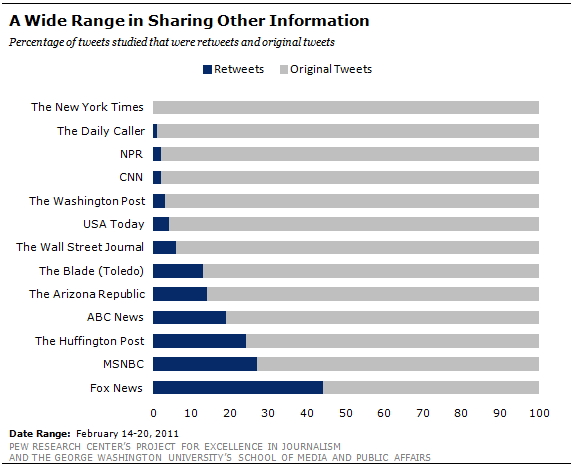[1]
In general, the news operations studied did not engage in much retweeting.

Researchers found that retweeting is rare, and retweets do not often originate outside the news organization. Only 9% of the tweets examined were retweets. Of these, 90% originally appeared on another Twitter feed connected to the same news organization such as a section feed, reporter’s feed or, in the case of television networks, another show on the network. In all, only 1% of tweets studied originated from an entity outside the news organization.
There was also considerable variation in retweeting across outlets. Many of the outlets examined almost never retweeted content from their main feeds. Fox and MSNBC tweeted less overall, but they were far more likely than the other outlets to retweet content (44% of Fox’s tweets and 27% of MSNBC’s tweets were retweets). The Huffington Post (24% of tweets), ABC News (19% of tweets) and the two local papers The Toledo Blade (13%) and The Arizona Republic (14%) were also more likely to retweet content.
[1]
Taken together, the retweet data and the findings with respect to the use of Twitter to solicit information suggest that mainstream news outlets are not generally using Twitter to expand the conversation or include alternative perspectives and voices.
FOOTNOTES
[1]
[1]




